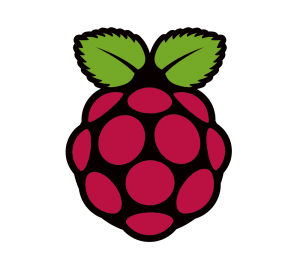About Us
Our Story
BGPTrace was founded in 2014 by Roy, a passionate creator who loves exploring the internet and developing small projects in his free time. This project is completely independent, with no outside funding or organizational ties. Everything we build comes from our own ideas, creativity, and design.
#MakeInteresting
Special thanks to my wife, Kaori, who has supported me and contributed ideas for this small project.
KRDevelop = Kaori and Roy
Don’t give up — there’s always a way forward.
We worked on this project from Raspberry Pi 2B up to Raspberry Pi 5, and discovered a way to achieve low power consumption and high efficiency in analyzing the internet through graphing, routeview data consumption, and route table analysis dating back to 2014.
“Probe everywhere” is another main concept of BGPTrace. With the release of powerful mobile devices and the launch of 4G networks, we explored the idea of deploying probe software on every mobile device to help trace network paths, while using Raspberry Pi to gather all statistics to achieve this goal. Mobile latency is not a concern here, since the focus is on network path, transit, and peer analysis. Based on this concept, the Android mobile application was released.
The core program was originally written in Perl to extract route tables from APNIC-R&D, and later migrated to a new version in Python. On the Raspberry Pi 2, due to SD card I/O limitations and limited processing power, it was already difficult to handle the entire route table. When including tools like DOT-Tools for graph generation, dynamic web portals, and proxy analysis, the Pi 2B still performed impressively. Migrating to the Pi 3B and Pi 4 provided improvements, but they continued to struggle with the heavy load of massive routeview datasets.
With the Raspberry Pi 5, however, the PCIe with SSD support finally delivers enough processing and data-handling power to perform all the tasks on a single device. It’s amazing to see this idea come to life.
In particular, measuring domain IP resolution through different public DNS servers has shown that performance gains are possible by accessing different servers (e.g., CDN edges). Automated scripts were created to extract domains from proxy server logs, query multiple DNS servers, and measure web access performance — all initially running on the Raspberry Pi 3B.
Furthermore, thanks to the low cost of Raspberry Pi devices, if automated tools can run independently for network service assurance, they can provide anyone with an affordable traffic analysis solution. These tools also allow authorized users to gather their own ping and traceroute statistics. To support this, pingnetbox.com was developed — a web portal with data storage for each user’s measurement results. The project is available on GitHub: https://github.com/royleung01. (Further Development/Release stopped)
Meanwhile, BGPTrace has joined RIPE Atlas and received an invitation from Globalping. We are working on better methods for measuring the global internet. A prototype for geographical latency and Starlink measurement, powered by automated scripting, has already been launched using RIPE Atlas probe for the measurement. Much of this work is still ongoing — whether in routing analysis, RPKI, or the idea of merging global tools for internet measurement.
All of the WordPress articles are written by me, reflecting my own perspective. Every idea was designed and created by myself.
This year, I also redesigned the web layout, focusing on producing more interactive graphs for internet visualization and reporting — all made possible by the Raspberry Pi 5. I’m very fortunate to have the chance to be one of the selected showcases at the Internet Visualization Exhibition at SIGCOMM 2025.
Thank you for taking the time to read this article. I hope you enjoy my work.
Report
Latency and Performance Analysis of different Public DNS server’s resolution result, Roy Leung, 2020, PDF
System Specification
Whole System powered by RaspberryPi. https://www.raspberrypi.org
